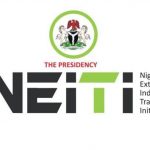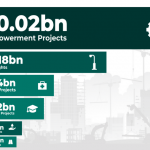A new report from civic-tech organization BudgIT reveals that 32 out of Nigeria’s 36 states relied on allocations from the Federation Account Allocation Committee (FAAC) for over 55% of their total revenue in 2023, underscoring a critical dependence on federal funds. The findings, part of BudgIT’s 2024 State of States report, were launched in Abuja this Tuesday.
The report highlights the fiscal vulnerabilities created by states’ reliance on FAAC, especially in light of fluctuations linked to oil revenue and other external factors. BudgIT’s analysis provides a detailed assessment of states’ fiscal health, focusing on the balance between internally generated revenue (IGR) and federal allocations.
“Thirty-two states relied on FAAC receipts for at least 55% of their total revenue, with 14 states depending on FAAC for over 70% of their revenue,” BudgIT noted in a statement. “This over-reliance makes state governments highly susceptible to economic shocks, especially those tied to crude oil.”
The report records a 31.2% increase in total revenue for the 36 states, rising from N6.6 trillion in 2022 to N8.66 trillion in 2023. This jump is largely attributed to a 33.19% increase in FAAC allocations following the removal of the petrol subsidy, freeing up additional federal funds.
Lagos State led in revenue generation, contributing N1.24 trillion, or 14.32% of the national total, with only Lagos and Rivers states producing enough IGR to cover their operating expenses. However, many states, such as Akwa Ibom, Bayelsa, and Taraba, required over five times their IGR to meet expenses, reflecting substantial reliance on federal transfers and aid.
Expenditure across all 36 states also surged, reaching N9.78 trillion in 2023—a 21.19% increase from the previous year—driven by rising personnel, overhead, and capital costs. Lagos again led in spending with N1.49 trillion, amounting to over 15% of total state expenditure.
While some states, including Ogun, Anambra, and Kaduna, were able to cover at least 50% of their operating costs through IGR, most states still depend heavily on FAAC for financial sustainability. “States like Akwa Ibom, Imo, and Taraba required more than five times their IGR to cover expenses, revealing significant dependence on federal revenue and external assistance,” the report stated.
The report also flags a rise in state debt, which increased by 38.1% in 2023, bringing the combined debt stock to N10.01 trillion by year-end. BudgIT urged state governments to focus on boosting IGR, reducing FAAC reliance, and adopting better debt management to foster fiscal sustainability.
At the report launch, BudgIT’s Country Director Gabriel Okeowo stressed the need for robust resource management among states. “Our analysis, now in its ninth edition, evaluates fiscal decisions across all 36 states with a particular focus on IGR and FAAC dependence,” said Okeowo. He also noted that despite a N2.3 trillion allocation to healthcare in 2023, states spent only 58.16% of the budgeted amount, reflecting gaps in resource utilization.
BudgIT’s report calls on states to adopt innovative revenue strategies and improve fiscal management practices to bolster resilience against economic shocks and promote long-term financial stability.










